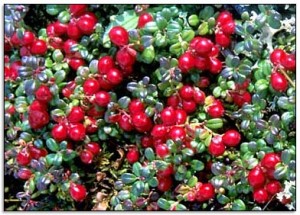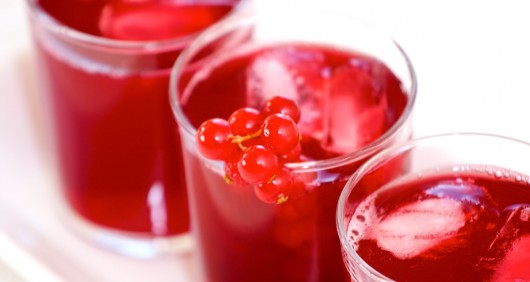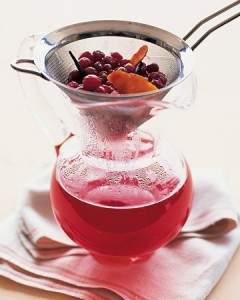Cranberry Juice, the Refreshing Body Cleanser
Cranberries
 Cranberry is a fruit that belongs to the botanical family, Ericaceae and Genus Vaccinium, the same family and genus as the Blueberry. Cranberries grow in places where blueberries grow. They can be found as wild shrubs in Northern Europe, Northern Asia, and North America. They can also be cultivated on low trailing vines atop soft, naturally water log ground called bogs or sandy bogs. When cranberries are ripe, they appear shiny, scarlet-red colored and they taste tart and tangy. Cranberry season is around October to December. These are the best months to pick fresh and ripe cranberries that contain the highest levels of essential nutrients.
Cranberry is a fruit that belongs to the botanical family, Ericaceae and Genus Vaccinium, the same family and genus as the Blueberry. Cranberries grow in places where blueberries grow. They can be found as wild shrubs in Northern Europe, Northern Asia, and North America. They can also be cultivated on low trailing vines atop soft, naturally water log ground called bogs or sandy bogs. When cranberries are ripe, they appear shiny, scarlet-red colored and they taste tart and tangy. Cranberry season is around October to December. These are the best months to pick fresh and ripe cranberries that contain the highest levels of essential nutrients.
Cranberries are sometimes nicknamed as “bounceberries” because the ripe ones could lively bounce. Sometimes, they are referred to as “craneberries” because their pale pink flowers look like the heads of cranes.
Cranberry is a fruit widely known for its ability to prevent and treat urinary tract infections. Recent studies are also suggesting new health benefits of cranberries including promoting gastrointestinal and oral health, regulating levels of cholesterol in the body, assisting people in the recovery stage of stroke and reducing cancer risks.
Cranberry Juice And Its Health Benefits
One of the best ways to get the nutrients and experience the benefits of cranberries is through juicing . Cranberry juice is made by pureeing, crushing or blending cranberries. Because of its unique tangy and tart flavors, it blends well with other fruits. A lot of people are enjoying this juice as a combination of other fruit extracts such as oranges, apples, pineapple or pears. Honey or maple syrup is a common addition since it adds an extra sweet flavor to the juice.
 Cranberry juice is acidic in nature that’s why it is diluted with water and sweetened with sugar to make it easily drinkable. It has been used for the prevention and treatment of Urinary Tract Infections . Studies have shown that cranberry juice prevents blockage of urinary tract. Drinking the juice also has the potential ability to deodorize urine and repair skin around stomas. The juice also contains some anticancer, antifungal and antioxidant properties. However, some of these health claims are not yet confirmed. Further research and studies are conducted to support such claims.
Cranberry juice is acidic in nature that’s why it is diluted with water and sweetened with sugar to make it easily drinkable. It has been used for the prevention and treatment of Urinary Tract Infections . Studies have shown that cranberry juice prevents blockage of urinary tract. Drinking the juice also has the potential ability to deodorize urine and repair skin around stomas. The juice also contains some anticancer, antifungal and antioxidant properties. However, some of these health claims are not yet confirmed. Further research and studies are conducted to support such claims.
How Cranberry Juice Treats UTI
Cranberry juice treats urinary tract infection in two mechanisms. First scientist believed that it could acidify urine and kill the pathogenic bacteria, the one causing the infection. Later on, more studies were conducted and they discovered that cranberry juice’s effectiveness in treating UTI is related to its ability to prevent and reducing the attachment of bacteria in the epithelial cells lining the urinary tract. Hence, infection is eventually prevented and even stopped.
Simple & Fresh Cranberry Juice Recipe
This recipe makes 8 servings(1 quart) of fresh, ice cold cranberry juice. It can be done in 35 minutes including the chilling time.
Ingredients:
- 2 quarts water
- 8 cups fresh or frozen cranberries
- 1-1/2 cups sugar
- 1/2 cup lemon juice
- 1/2 cup orange juice
Instructions:
- Prepare fresh cranberries by washing them off gently with running water
- Place cranberries in a saucepan filled with enough water and bring them to a boil. Reduce heat; cover and simmer for 20 minutes or until berries begin to pop.
- Using a fine strainer, strain mixture while pressing with a spoon. Throw away drained berries.
- Return cranberry juice to the pan. Add sugar, lemon juice and orange juice while constantly stirring. Bring mixture to a boil; cook and stir until sugar is dissolved.
- Remove from the heat. Cool. Transfer to a pitcher; cover and refrigerate until chilled.
Cranberry Juice Nutritional Facts
1 cup of cranberry juice (approximately 95 grams)
Vitamins:
Vitamin C : 12. 6 mg
Riboflavin: 0.019 mg
Vitamin B6: 0.054 mg
Vitamin A: 57 IU
Thiamin: 0.011mg
Niacin: 0.096 mg
Vitamin K: 5.1 mcg
Vitamin E: 1.20 mg
Minerals:
Calcium: 8 mg
Magnesium: 6 mg
Sodium: 2 mg
Potassium: 81 mg
Iron: 0.24 mg
Zinc: 0.10 mg
Phosphorus: 12 mg
Beta carotene: 36 mcg
Fats
Total Fat Content: 0.12 g
Polyunsaturated : 0.052 g
Monounsaturated: 0.017 g
Cholesterol : 0
Other Macronutrients
Water: 82 g
Protein: 0.37 g
Sugar: 3. 84 g
Carbohydrates: 11. 59 g
The good thing about cranberry juice is that it’s also rich in Vitamins C, E, K and A, calcium and phosphorus and contains zero cholesterol.
Other Known Benefits of Cranberry Juice
Detoxifying Agent/Body Cleanser
Since cranberry juice supports and promotes a normal urinary tract functioning, drinking 3-4 glasses of it for a period of 4-5 days can eliminate marijuana and related weeds out of the body system. It means our body is cleansed naturally through urination with the help of this refreshing drink. Another thing, drinking cranberry juice regularly may help you in detoxifying your body and in improving skin and hair quality.
Help our Bones Grow Stronger
Because cranberry juice is an excellent source of calcium, drinking it regularly may help our bones grow stronger. This would also help menopausal women in reducing their risks of developing osteoporosis.
Cranberry Juice And Possible Side Effects
Due to the fact that cranberry juice treats urinary tract infections, people had mistakenly assumed that it can be used to get rid of kidney stones. Well, here’s the truth, researchers in 2005 have proven that cranberry juice does not help people with kidney stones, in contrary, it may even contribute to kidney stone formation. Cranberry juice is rich in calcium and vitamin C which are beneficial for the body but these nutrients are the precursors of oxalates, the main ingredient of kidney stones. Calcium oxalate is the substance found in foods such as coffee, nuts and chocolates. An actual experiment was conducted with 20-24 respondents. The respondents were asked to drink a liter of cranberry juice per day for one week and a liter of water each day in the next week. Their urine samples were tested at the end of the week and it was found that the levels of calcium oxalate in their urine have increased to an average of 18%. This led the researchers to the conclusion that kidney stones formation in adults may be fostered by drinking cranberry juice.
More Articles On Cranberries And Cranberry Juice
Best Cranberries For Cranberry Juice And How To Choose Them
When it comes to cranberry juice, nothing compares to homemade. …Cranberry Juice Side Effects – Can You Drink Too Much Of It?
Though there are numerous benefits to drinking cranberry juice, overconsumption …Cranberry Nutrition Facts
Cranberry Nutrition Facts Betaine 0,2 mg Calcium 8 mg Calories …Health Benefits of Cranberry Juice
Cranberries are an incredibly diverse and very small fruit that …
